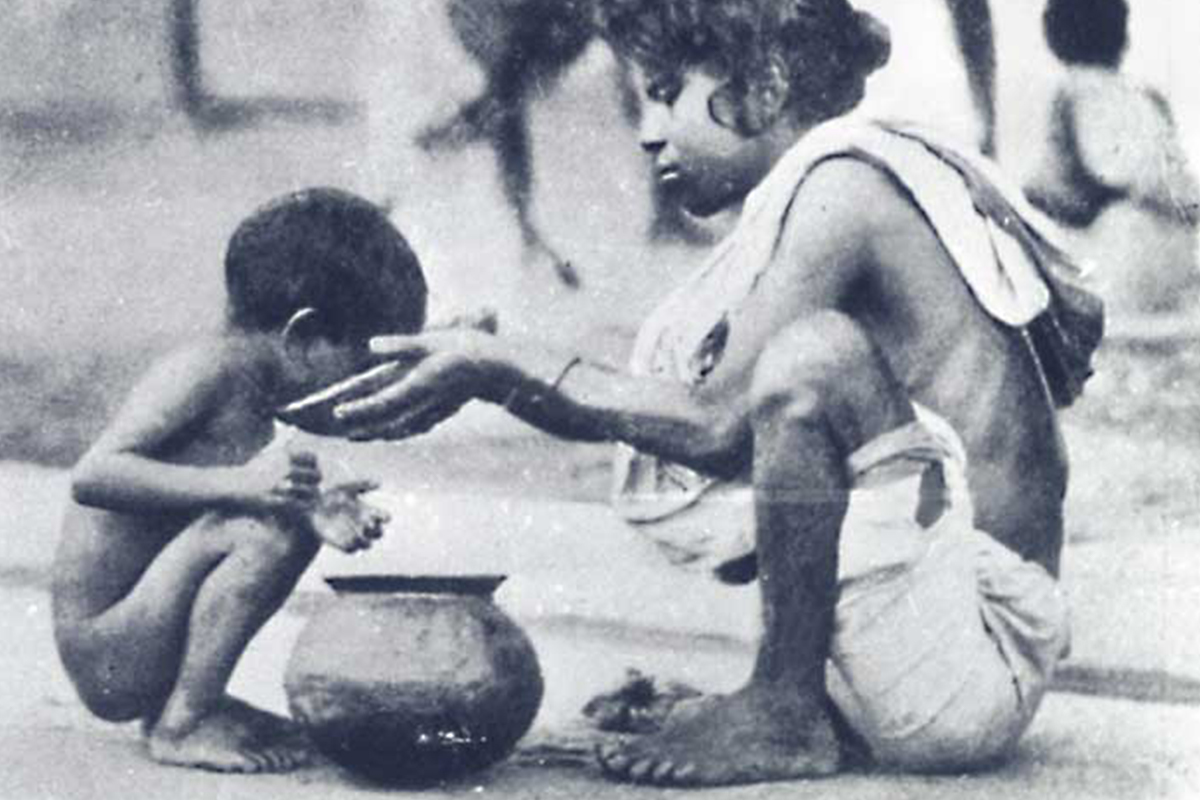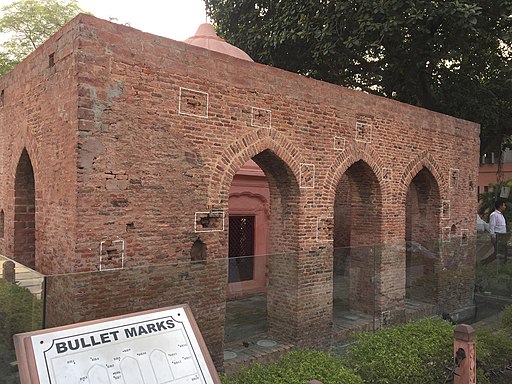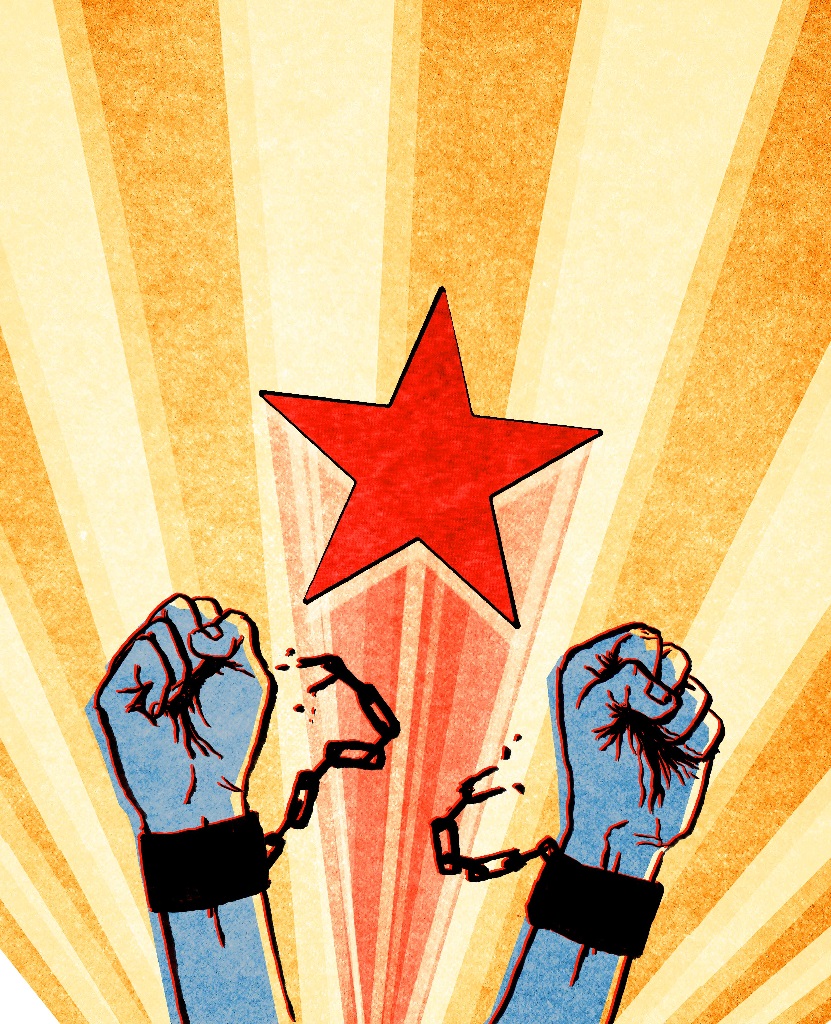
A new report in the journal World Development estimates that British colonial rule killed 100 million people in India in the span of just 40 years. Based on census data, the study finds that British policies led to a rise in extreme poverty, declines in real wages and life expectancy, and more frequent and deadlier famines. While anti-communists falsely claim communism led to the deaths of 100 million people worldwide, capitalism caused the deaths of 100 million people in a single country within less than two generations. The deafening silence of anti-communists in response to the horrors of capitalism shows the dishonesty and fraud of their supposed concern for human life.
British imperialism killed 100 million in India
Using data from 1880s India as a baseline for “normal” mortality rates, scholars Dylan Sullivan and Jason Hickel find that at least 50 million excess deaths occurred in India under the British Raj from 1891 to 1920. Even this unfathomable death toll, they say, is a conservative estimate. “While the precise number of deaths is sensitive to the assumptions we make about baseline mortality, it is clear that somewhere in the vicinity of 100 million people died prematurely at the height of British colonialism,” the authors write in an Al Jazeera op-ed summarizing the report. They describe these deaths under British imperialism as “among the largest policy-induced mortality crises in human history.”
The authors identify several policies responsible for the death toll. British imperialism devastated the manufacturing sector of India—which before colonization had one of the world’s largest industrial sectors, exporting high-quality textiles—by removing Indian tariffs, which allowed British goods to flood the Indian market. They also imposed a system of taxes and internal duties that prevented Indians from selling cloth in India, much less exporting it. This unequal trade system destroyed Indian manufacturers to the benefit of British industry, turned the country into a source of raw materials, and led to a massive increase in poverty, hunger, and disease among Indians.
Sullivan and Hickel describe the draining of wealth from India as a system of “legal plunder”, in which Britain taxed Indians and used the revenue to buy Indian products such as indigo, grain, cotton, and opium, in effect acquiring these goods for free. Indian goods were consumed in Britain or re-exported. The state in turn used the revenues to fund industrial development in Britain as well as in dominions like Canada and Australia. The authors write:
This system drained India of goods worth trillions of dollars in today’s money. The British were merciless in imposing the drain, forcing India to export food even when drought or floods threatened local food security. Historians have established that tens of millions of Indians died of starvation during several considerable policy-induced famines in the late 19th century, as their resources were syphoned off to Britain and its settler colonies.
Throughout British rule in India, the colonial occupying force consistently acted with the most murderous brutality and racism. Writing for the New York Tribune on Sept. 4, 1857 during the Indian Revolt, Karl Marx described how the British crushed the rebellion through unbridled terror. Marx quoted letters from British officers, who boasted of their mass executions of civilians: “Not a day passes but we string up front ten to fifteen of them (non-combatants),” wrote one officer. “We hold court-martials on horseback, and every n—– we meet with we either string up or shoot,” wrote another.
Marx added: “From Benares we are informed that thirty Zemindars were hanged for the mere suspicion of sympathizing with their own countrymen, and whole villages were burned down on the same plea.” Collective punishment involving the burning down of entire villages is the same method another capitalist state, Nazi Germany, would later use to subjugate the population in its invasion of the Soviet Union. Adolf Hitler admired the British Empire as his model for imperialist domination and exploitation. “What India was for England, the spaces of the East will be for us,” the Nazi dictator said.
One of the most notorious examples of British colonial violence was the Amritsar massacre of April 13, 1919, when British authorities trapped peaceful protesters inside Jallianwala Gardens and fired on the crowd until they ran out of ammunition. Hundreds of people were killed and more than 1,000 injured. Many among the British elite hailed acting brigadier-general Reginald Dyer, who ordered the massacre, as a hero. Known in India as the “Butcher of Amritsar”, Dyer was feted back home by the House of Lords as the “Saviour of Punjab”.

Source: shankar s. from Dubai, united arab emirates, CC BY 2.0, via Wikimedia Commons
The same murderous contempt for India’s population was seen during the Second World War, when the anti-communist Winston Churchill—supposedly a great democrat and opponent of fascism—had food taken from India to feed “already well-supplied” British soldiers just as a massive famine was sweeping through Bengal. Churchill, whose statues still adorn cities across the Commonwealth, committed mass murder through hunger in a manner no different from the Nazis’ attempted Hunger Plan—the intended mass starvation of the U.S.S.R. by seizing food to give to German soldiers. Churchill blamed Indians for the famine his own policies caused, in words dripping with the same racist contempt Hitler displayed for Jews, Poles, and Slavs. “I hate Indians,” Churchill said. “They are a beastly people with a beastly religion.” The famine, he said, was their own fault for “breeding like rabbits.”
Anti-communist lies and distortions
The estimated 100 million people who died at the height of British imperialism in India is noteworthy, in part because 100 million is the same number anti-communists falsely allege died under “communism”. The most popular source for this latter figure is The Black Book of Communism, a collection of work by several academics.
About the Black Book a few things must be said. First, the figure of 100 million is grossly inflated, according to some of the book’s own authors. Contributors Jean-Louis Margolin and Nicolas Werth have said editor Stéphane Courtois, who also wrote the introduction, was “obsessed” with reaching a total of 100 million which led to “sloppy and biased scholarship”. Second, the book is dishonest. For example, it includes all deaths in the Russian Civil War as deaths caused by “communism”, when the civil war was fought against the reactionary White Russian forces supported by 21 foreign armies, who attacked and sought to destroy the first workers’ government.
Third, the book counts deaths under Stalinist regimes as “communism”. The equation of Stalinism with Bolshevism is one of history’s most nefarious lies, considering that the chief targets of Stalin’s Great Purges were socialists and communists who fought against Stalinism. The first people Stalin sent to Siberia were the Trotskyists, members of the Left Opposition who opposed the bureaucratic caste Stalin represented and who called for a return to workers’ democracy. We resent the murder of communists being used to blacken the name of communism.
Finally, the supposed 100 million who died because of communism would also include Adolf Hitler, since the U.S.S.R. was responsible for the defeat of Nazi Germany. Despite all the crimes of Stalinism, the nationalized planned economy remained a tremendous historical step forward. Its superiority allowed the Soviet Union to withstand the Nazi assault, which had all of Europe’s resources behind it; to fight back and destroy Hitler’s barbaric regime. As Ernest Hemingway said, “Anyone who loves freedom owes such a debt to the Red Army that it can never be repaid.”
Capitalism is horror without end
The 100 million deaths caused by capitalism in India provide vital context for the 100 million deaths falsely attributed to “communism”. We are told that the latter represents all deaths throughout the entire world caused by communism over a century. Yet even that number is surpassed by the record of capitalism in just one country in a few decades. The example of India is just the tip of the iceberg for capitalism, which Lenin once described as “horror without end.”
British imperialism at its peak represented the richest and most powerful country in the world, yet it starved millions to death in India. The same could be said for Ireland, where at least 1 million people, or 13 per cent of the population, died during the Great Famine of 1845-1850. Capitalism and landlordism, fully supported by British government policy, were responsible for Ireland’s mass starvation.
Capitalism’s murderous history is full of such examples. To name a few, there is the genocide of Indigenous people in the Americas, which historians estimate resulted in the excess deaths of 175 million people; the Atlantic slave trade; mass killings, torture, and enslavement of native populations by European imperialist powers; two world wars; atrocities of fascist regimes including the Holocaust; and subsequent imperialist wars that continue to this day in countries like Ukraine.
Countless deaths occur daily from preventable causes under the profits system. More than 3.4 million people die of waterborne diseases each year—including 801,000 children under the age of five who die from diarrhea—due to a lack of clean drinking water according to World Vision. Nine million people die from hunger every year, UN World Food Programme executive director David Beasley reports, or 24,000 each day. Millions of people die from preventable diseases each year. Even in the United States, the richest country on earth, tens of thousands die annually due to lack of health care. The COVID-19 pandemic has provided new evidence of the murderous stupidity of the capitalist ruling class as they abandon all efforts to stop the spread of the virus, and refuse the most elementary public health-measures such as paid sick days.
The clean banner of Marxism
Where is the outrage of anti-communists, who profess deep anger and sorrow for the 100 million they falsely allege died under “communism”, for the verified millions who die from capitalism each year? One doesn’t have to look back a century to British India; the figures mentioned show that 100 million people die from capitalism every few years.
Those who point out the number of deaths under capitalism are often accused of “whataboutism”: that is, of ignoring accusations and instead responding with counter-accusations or raising a different issue. In fact, it is anti-communists who engage in “whataboutism” by ignoring atrocities of the capitalist system and attacking “communism” instead. We have responded to the false charges and deceitful methods of anti-communists who equate Marxism with Stalinism.
Trotskyists, those who upheld the principles of Bolshevism and genuine Marxism, were the most implacable opponents of Stalinism. Leopold Trepper, founder and leader of the “Red Orchestra” spy network in Nazi-occupied Europe—who Stalin rewarded for his troubles by imprisoning him for 10 years after the war—once asked who protested against Stalinism under Stalin. “The Trotskyites can lay claim to this honour,” Trepper said. “Following the example of their leader, who was rewarded for his obstinacy with the end of an ice-axe, they fought Stalinism to the death, and they were the only ones who did.”
Marxists oppose the crimes of Stalinism just as we oppose the crimes of capitalism. Why do anti-communists ignore the crimes of capitalism? We submit that theirs is a performative outrage borne of cynicism and dishonesty. Those who support capitalism support a system directly responsible for untold millions of deaths. This is not debatable, as shown by the statistics above. But Marxists stand against this system, capitalism, that prioritizes profit over human life—a system built on class hierarchies, oppression, mass death and suffering, and whose defenders hypocritically claim to stand for freedom. French socialist Louis Auguste Blanqui answered this false claim long ago. “We know,” Blanqui said, “the freedom that argues against communism is the freedom to enslave and the freedom to exploit.” Anti-communists are on the wrong side of history. In defending capitalism, they defend a failed system. They offer only hate, pessimism, war, repression, poverty, disease, and ecological collapse. Marxists are optimistic about the future because we stand for socialism, a system based on human needs and the liberation of the oppressed. We stand, as Karl Marx and Friedrich Engels wrote in The Communist Manifesto, for “an association, in which the free development of each is the condition for the free development of all.” In fighting for socialism, the International Marxist Tendency is fighting for nothing less than the total liberation of humanity. We invite you to join us in this fight.


